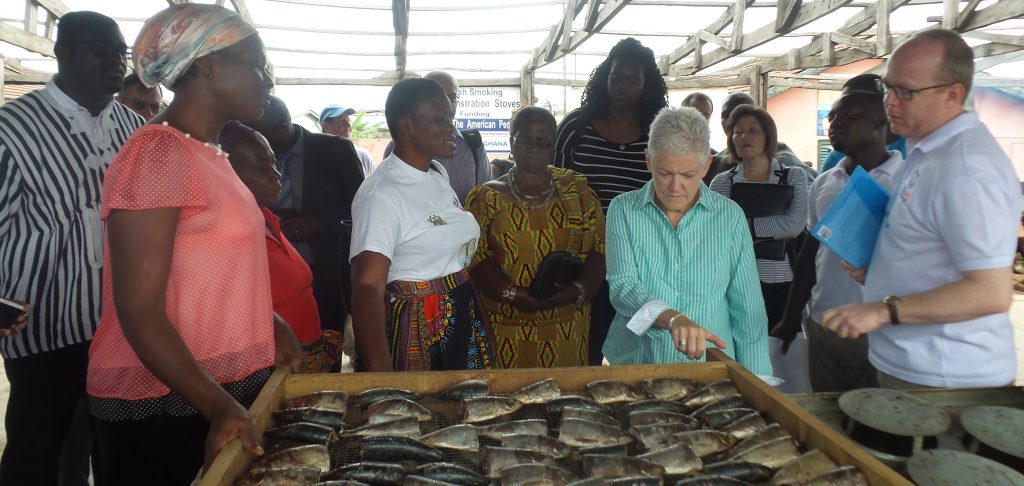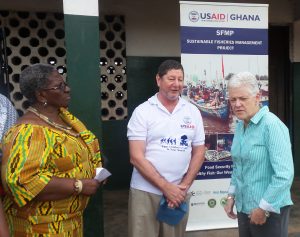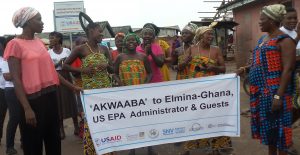
… Lauds Project Efforts on Improved Fish Stoves
Administrator Gina McCarthy of the US Environmental Protection Agency, says 17,000 Ghanaians die annually from air pollution. “Women and children are more vulnerable; 200,000 children in Ghana keep suffering from air pollution. When children suffer, the economy suffers. It is therefore important and ideal to continue developing technologies like clean cook stoves that reduce air pollution.” She made the remarks at a public lecture in Cape Coast after a visit to a focal site of the USAID/Ghana Sustainable Fisheries Management Project – SFMP – in Elmina on Monday, October 10.
The visit, forms part of a series of tours in Ghana, to foster greater collaboration and commitment between the US and Ghana Governments relative to climate change. Administrator McCarthy, accompanied by other US Government officials, visited the USAID-funded fish smoker demonstration facility of the Central and Western Fishmongers Improvement Association (CEWEFIA) located in Elmina, Central Region. CEWEFIA is a project implementing partner.

Hosting the delegation, Dr. Brian Crawford – Chief of Party of SFMP noted that The SFMP takes an integrated approach to improvements in the fisheries sector. While overfishing and illegal fishing are of main concern, poor post-harvest practices are also targeted for improvements. This is especially important from a gender perspective as the post-harvest value chain is dominated by women. “Over the life of the Project, more than 4000 micro, small and medium scale businesses involved in the fish value chain will have benefited from post-harvest improvements.” A sustainable scale-up strategy has been developed for the promotion of the improved stoves, providing a 30% incentive for the first 150 early adopters.
The fish smoking sector in Ghana is highly dependent on fuelwood as a source of energy, leading to the degradation of these forest systems. Between 2005 and 2010, Ghana’s deforestation rate was estimated at 2.2% per annum, the sixth highest deforestation rate globally for that period. Contributing to this high rate of deforestation is the widespread use of inefficient fish smoking technologies. The World Health Organization estimates that harmful cookstove smoke is the fifth leading cause of death in developing countries, with the most popular being the Chorkor stove. However, using this technology, women work under often strenuous conditions (exposure to heat and smoke) and for marginal incomes.

The newly improved fish stove – Ahotor (meaning ‘Comfort’) promoted by the project, produces lower levels of polycyclic aromatic hydrocarbons (PAH), which is considerably lower than the Chorkor and 32 per cent more fuel efficient. The SNV Netherlands Development Organization leads the smokers research and development engineering efforts.


